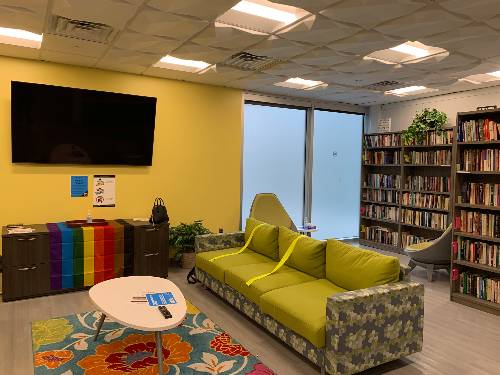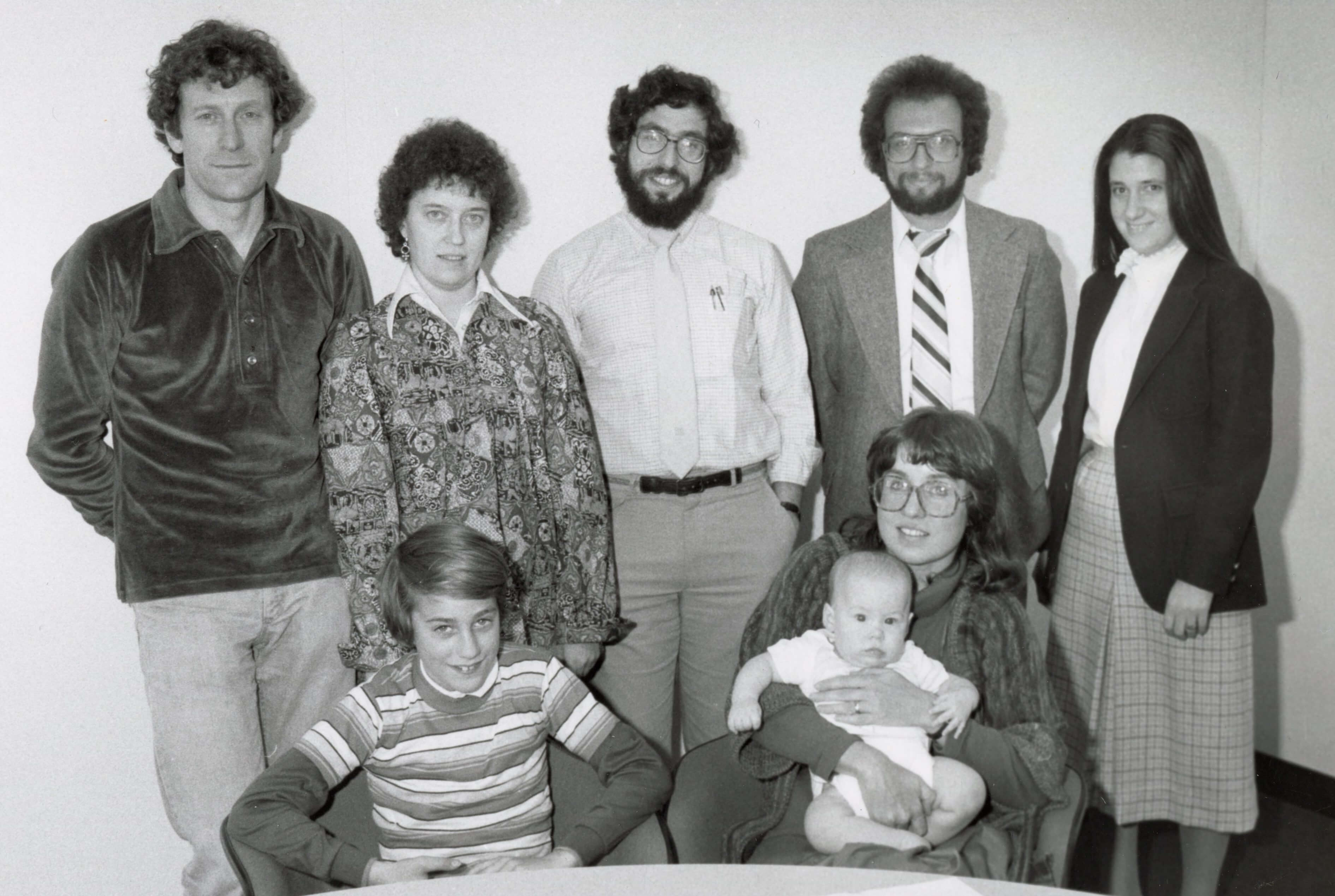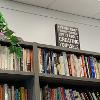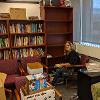The Nancy Ashton Collection: A Living Legacy
By Laurie Melchionne

In the F-Wing Women’s, Gender, and Sexuality Center, there is a cozy nook surrounded by plush, comfortable furniture, a shiny flat-screen TV, and, of course, shelves and shelves of books. Unlike other libraries found on campus, the one in this quiet space exists in memory of a single woman who was integral to so many lives here at Stockton: Nancy Ashton.
When I visited the Nancy Ashton Collection, I was immediately greeted by Rebecca Longo, Assistant Director of the Women’s, Gender, and Sexuality Center. Although her face was hidden behind a floral-printed mask, her eyes were smiling and she helped the space live up to its reputation of inclusion and safety.
When I told her, “I’m here for the Nancy Ashton Collection,” Rebecca’s eyes lit up. “Of course!” she exclaimed “Follow me!”
She led me into the lounge that the collection calls home, which was like stepping into a rainbow. Every wall, shelf, and piece of furniture is a different color—symbolic of the LGBTQ+ flag. There is a TV with access to cable and streaming apps, fully-equipped kitchen area, and an artfully designed chalkboard plastered with phrases like, “love is love,” “empowered women empower women,” and “girls just wanna have fundamental human rights.”
The space screams girl power; here, Nancy Ashton’s book collection has a fitting home. Ashton, who started teaching at Stockton in 1977, was a powerhouse in the Women’s Studies program, becoming an early coordinator just one year after joining Stockton. In the spring, she and Peggy Dugan launched the course “Perspectives on Women,” which influences the curriculum today in current courses such as “Feminist Theory.” In 1976, she completed her P.h.D in Psychology at the University of Florida, a speciality that would influence her work in women’s studies for decades to come.
In addition to being an active member of her Unitarian Church in Haddonfield and serving as the President of the Board of Directors of the Atlantic County Women’s Center from 1981–1982, and serving two terms as a Women’s Studies Coordinator by 1982, Ashton also served her first of two terms as the Psychology Coordinator at Stockton in 1987, where she submitted a New Jersey Department of Higher Education-funded grant on integrating race, gender, and class into the curriculum.
For thirty years, Nancy Ashton taught Psychology and Women’s Studies at Stockton, where she created an environment of inclusion for both students and faculty alike. In the Nancy Ashton Memorial video taped after her death in 2013, fellow faculty members, friends, and former students of Ashton related tearful anecdotes. Sue Kidd, a student of Nancy’s who, at the time, was 29, divorced, and “trying to make something of [her] life,” said, “I could always feel like I could just walk to her office and just talk to her.”
Professor Deborah Gussman, who also spoke in the video, told me during an interview, that Ashton “always offered to help, to babysit...she was really openhearted in terms of her desire to not just talk about women and work/life balance, but really assist in helping her younger colleague to make that happen. I was really grateful to her for that.” Ashton was a people person who talked Gussman through the hardest early years of motherhood, something that Ashton had experience with as a single mom.
Professor Kristin Jacobson, who also spoke at Ashton’s memorial, talked about how Ashton sought her out when she first came to Stockton in 2005: “I got to know her through her reaching out immediately when I started. She said ‘I want to help introduce you to Stockton and get to know the community.’ ”
If anyone could introduce a new faculty member to the community, it was Nancy Ashton. At her home, guests wouldn’t find a TV in her living room. This was deliberate because it all but forced interesting conversation at her house and contributed to the way Ashton really listened to whoever was speaking to her.
Furthermore, this—among dozens of other factors—promoted her lifestyle of being an avid reader. One of the speakers in her memorial video referred to her office on campus as “the real library of Stockton.”
When visiting the collection in person, it is not hard to see why. There are rows and rows of books of all shapes, colors, sizes, and subjects. They all capture Nancy’s dedication to psychology and women’s studies, with titles like Sex and Power in History by Amaury de Reincourt, The Psychology of Women, and Sisterhood is Powerful. Almost all of the books are original copies from the 70s, 80s, and 90s, most of which are no longer accessible in print format. These books that once occupied Ashton’s office are available for students to access forever.
“The collection is part of her legacy,” added Gussman. “It’s important to honor those women’s legacies that tend to be forgotten.”
What was once held in Ashton’s own hands will now be in the hands of students for
generations to come; even after her death, Ashton continues to literally touch lives
here at Stockton.









